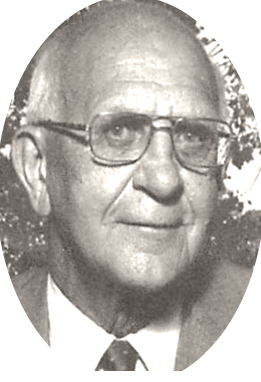In May we celebrate Mother’s Day. In June, Father’s Day. On these holidays parents are to be remembered and honored, in particular by their children. Christians find this in keeping with the Fourth Commandment and can easily attune themselves to the spirit of such remembrance. But with Christians momentary remembrance isn’t enough. As one father often told his children, “Forget the cards and gifts. The only way you can really honor me is with respectful obedience.”
It won’t do, however, for parents simply to demand this. The Bible clearly puts children under obedience, but they don’t come that way. None of us did. As the Apostle Paul says in Ephesians 2, under the curse of sin we are “by nature children of disobedience.” This is the very essence of our being. It started with man at the beginning rebelliously turning away from the will of God, and it now characterizes the conduct of the flesh in every aspect of life. Because of this the Christian realizes that if honoring by obedience is to be expected of children, it has to be taught and trained into them.
The question immediately arises, “How does one go about this?”
The words of Paul in the first verses of Ephesians 6 might be considered. We have no trouble with “children, obey your parents,” nor with “honor thy father and mother,” and we readily agree with “bring them up in the nurture and admonition of the Lord.” What is often passed over too quickly and given less attention is “ye fathers, provoke not your children to wrath.” And yet, this is the starting point for parents, their first consideration. The Phillips translation paraphrases this to “fathers, don’t overcorrect your children or make it difficult for them to obey the commandment.”
The question might arise, “Just what, in particular, does it mean to ‘provoke to wrath’? Are there examples?” We can speak only in terms of opinion, of judgment on what has been observed. There occur situations, even in Christian families, where sympathy belongs with the children because they have been victimized by thoughtless handling. We adults should watch ourselves and examine whether as we grow older we tend to drift into arbitrary ways of dealing with the young . . . that as adults we tend to force upon our children our own personal likes and dislikes, in music, in recreation, in styles and habits. So much so, that if one does not fall into our particular pattern of likes and dislikes, we lose the ability to evaluate fairly the whole person. “If his hair style isn’t like mine, he can’t be any good.”
One might charge this sounds like permissiveness, an indulging of children, a “running scared” before the young. Not at all! Sin isn’t excused, nor even an abuse of Christian liberty. We are simply saying that it should be remembered the Lord also says, “provoke not your children to wrath,” and give indication that this is not a remote possibility. This word of the Lord says, “Proceed with circumspection, evaluate slowly and fairly, seek and pray for wisdom and understanding. Your children are not just yours to do with as you please.”
In this connection that oft forgotten section of the Catechism, “The Table of Duties,” comes to mind. Luther added a couplet at the end, “Let each his lesson learn with care. And all the household well shall fare.” Learn the lesson with care. That implies teaching it with care. Then it isn’t this, that as a parent I need go about demanding obedience of my children, asserting my authority and being quickly affronted when it isn’t supposedly recognized. Rather, once inculcated it hardly need be mentioned, and yet it becomes a deeply entrenched way of life, quietly carried out, wonderful to live by. All this is possible to the new man in Christ, following after those things which the Lord advises.
In this series we are reprinting Spokesman articles by early leaders in the CLC. Pastor James Albrecht is the curator of the series. Rev. Gilbert A. Sydow (1914-1988) was a leader in the formation of the CLC. He served several parishes in the Pacific Northwest, including Ellensburg, Washington. Later he was the longtime pastor of Faith, New Ulm, Minnesota. He served on the boards of Regents and Doctrine, and edited the Lutheran Spokesman. This article is from the Lutheran Spokesman of June 1971. Scripture quotations are from the King James Version.
1914-1988


